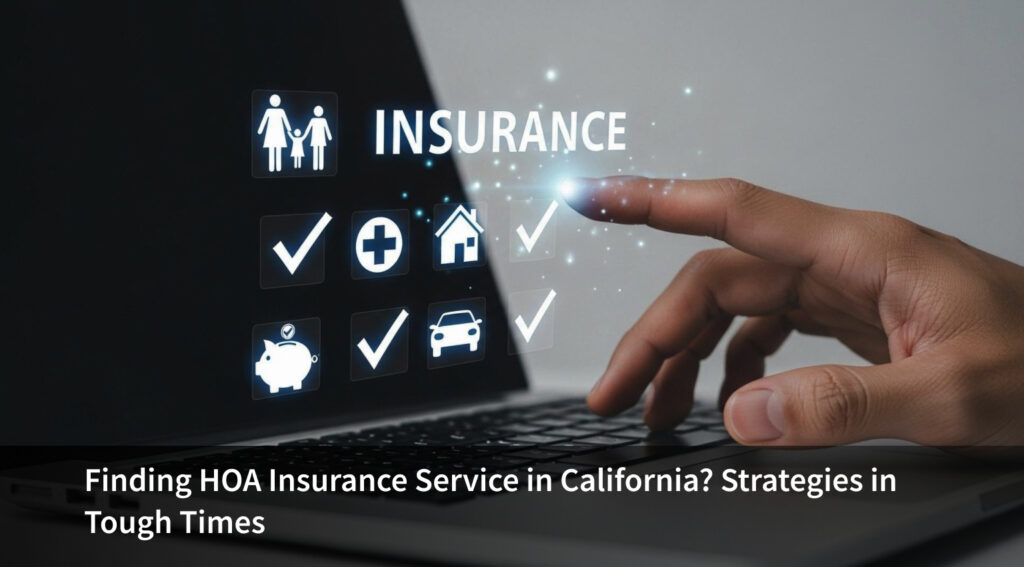
Finding HOA Insurance Service in California?
Homeowners’ Associations (HOAs) in California are finding it challenging to secure the HOA insurance they need. From stricter underwriting guidelines to climbing premiums, traditional affordable insurance is not as easy to come by.
Today, whether you are managing a small community or a large condo complex, navigating the market of HOA insurance in California can be an arduous task that requires expertise and the right partner.
At e360 Insurance Services, we understand the unique challenges HOAs face, especially in high-risk regions like California. Here's how your HOA can approach insurance in tough times and still get the coverage your community needs.
Why HOA Insurance Matters More Than Ever
Rather than a legal obligation, HOA insurance serves as an essential security blanket for the entire community. This includes some physical structures that are shared between units, such as common areas, common liability risks, and more. Your HOA and your homeowners could be on the hook for millions in damages from lawsuits, natural disasters, or fast-spreading fire without this important policy.
In California, where wildfire risks, earthquakes, and rising repair costs are realities, having solid HOA insurance is essential.
Challenges HOAs Are Facing in Today’s Market
- Rising Premiums: Many carriers have raised their HOA insurance prices significantly in California because of soaring natural disasters and increasing inflation.
- Carrier Withdrawals: Some insurers have stopped writing HOA policies altogether in certain high-risk zones, limiting your options.
- Stricter Underwriting: Insurers are more selective in choosing the condition of homes and their maintenance history, as well as scrutinizing loss records.
- Coverage Gaps: Cheaper policies often omit critical protections, opening associations up to more liability.
6 Smart Strategies to Find the Right HOA Insurance in California
1. Start the Renewal Process Early
Give yourself enough time, at least 90 days before renewal, to compare policies, gather documentation, and negotiate better terms.
2. Work with a Specialized Agency
Partner with an experienced agency like e360 Insurance Services that understands the complexities of HOA insurance in California. We have access to multiple carriers and know how to advocate for associations.
3. Conduct a Full Risk Assessment
Insurers want to make sure you are actively mitigating your risks. Bring service and safety documentation to show you are worthy of insurance coverage.
4. Review the Master Policy Carefully
Make sure you have the following coverages in your master policy: liability, directors and officers (D&O), common areas, building exteriors, and perhaps umbrella coverage. Verify instead of assuming.
5. Educate the Board and Residents
Educate homeowners on what the HOA policy covers vs. what they need on an individual basis. It avoids any ambiguity and any losses that may surface at a later stage.
6. Raise Your Deductible or Change Policy Details
Raising deductibles or exploring creative policy options may decrease your rate, but the necessary coverage will remain.
Why Work with e360 Insurance Services?
Getting you the best insurance coverage is our mission. We are not simply an insurance agency; we are your strategic partner. The experts at e360 Insurance Services know all too well the insurance struggles faced by a California HOA and can work to provide you with quality, comprehensive coverage, no matter how difficult the market becomes.
We collaborate with HOA boards, property managers, and community leaders to develop customized insurance solutions that are in compliance with statutes and ordinances and will serve the best interests of your community for years to come.
Let’s Protect Your Community Together
Finding the right HOA insurance in California may be challenging right now, but with the right guidance, it’s possible.
Contact e360 Insurance Services today for expert advice, competitive quotes, and a clear path forward.
